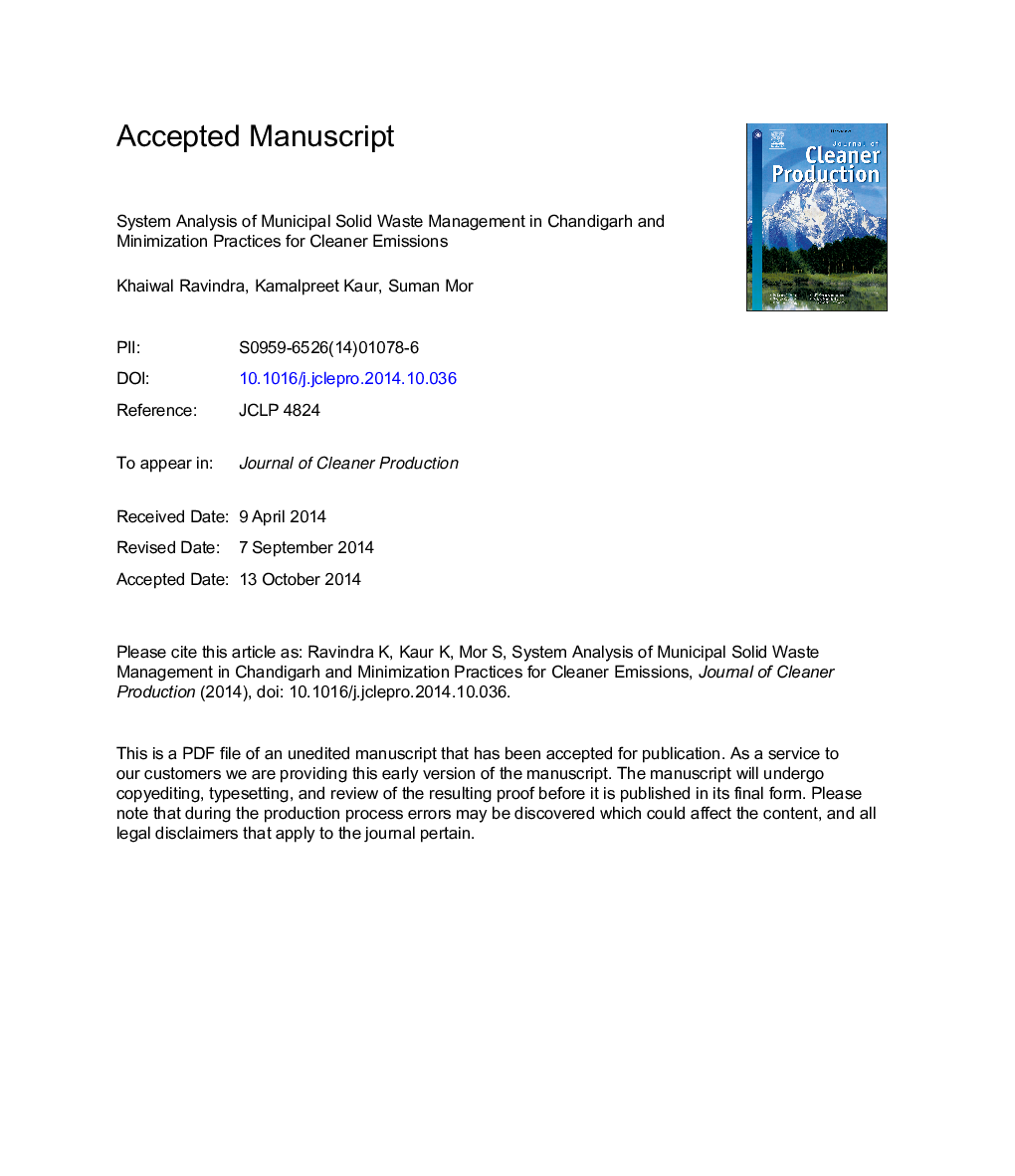| Article ID | Journal | Published Year | Pages | File Type |
|---|---|---|---|---|
| 8105067 | Journal of Cleaner Production | 2015 | 18 Pages |
Abstract
Rapid urbanization and population growth makes efficient management of municipal solid waste (MSW) a challenge to municipal authorities. Considering this, the current study appraised the MSW practices including waste generation, collection, transportation, disposal and treatment in Chandigarh. The strength of MSW management includes the involvement of various public-private stakeholders including the Municipal Corporation of Chandigarh (MCC). The city has door to door waste collection system for its transportation at collection-cum-transfer station (Sehaj Safai Kendra, SSK). From SSK MSW is transported to Refuse Derived Fuel (RDF) plant. RDF plant utilizes the combustible fraction of MSW but discard organic fraction, which is dumped at an open disposal site. If the total MSW from Chandigarh is diverted to RDF plant it could reduce 5451 tCO2 emission per year and has potential to earn carbon credits under Clean Development Mechanism (CDM). Further, based on system analysis approach the study proposes options for the improvement in current waste management practices in Chandigarh, which could also be adopted by other cities in developing world to reduce the adverse impact of MSW on environment and human health.
Keywords
Related Topics
Physical Sciences and Engineering
Energy
Renewable Energy, Sustainability and the Environment
Authors
Khaiwal Ravindra, Kamalpreet Kaur, Suman Mor,
